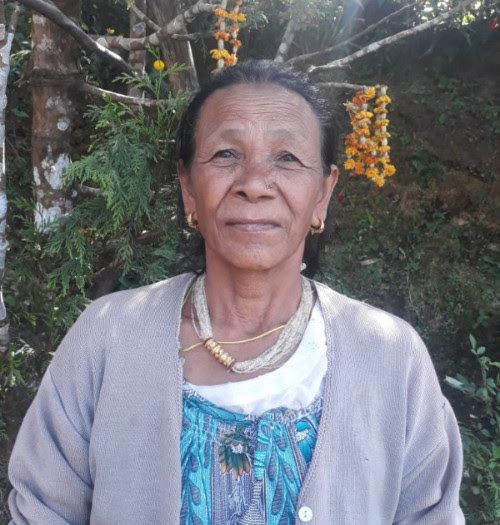27/12/2017 0 Comments
Anjila's Story - Improving Access to Healthcare
In Padang, the nearest health clinic (for those that can afford it) is more than 2 hours each way by foot in Kolbong. Broadleaf improves access to healthcare by utilizing our school health activists in the communities that we work.
The communities that Broadleaf works in are remote and the terrain is varied, for example, one such community is Padeng. If you live in Padeng and need medical care, you must walk two hours to reach the next largest town, Kolbong.
In Kolbong there is a basic health clinic, but you can only go there if you have 200 rupees for clinic charges and food during the journey. If you are a woman, you may need to take your children with you and make sure they have food as well. One of our community members, Anjila made the trek from Padeng to Kolbong many times each year to monitor her high blood pressure. It was a burden for an elderly woman with family duties and grandchildren to look after. But in the remote villages of India’s Darjeeling hills, this is life.
No doubt, here in the U.S., solutions to our own health care challenges remain elusive. But together we can make an immediate difference for people like Anjila in Darjeeling. Bringing basic health services to Padeng costs very little and requires no political revolution.
We can change lives today. Since CHHIP's implementation in Padeng, Broadleaf's school health activist and community member, Nima, has received training to measure and manage blood pressure. Nima now helps Anjila care for herself at home, sparing her the arduous, expensive journey to Kolbong. This simple intervention means Anjila can stay healthy and begin to save money for her grandchildren.
While Broadleaf's focus remains centered around community development within the primary schools of our communities, this is an example of an ancillary benefit that our programs have had on the broader community. Improving access to basic health care services is just one way the the generosity of our supporters empowers children and families.
With your help in 2017, more than 550 kids in the Eastern Himalayas received a total of over 11,000 hours of education on topics from hygiene to gender equality to nutrition. More than 400 women and girls participated in their first-ever women’s health fair. And 675 families received emergency food relief during a government shutdown in the region.
We’re eager to leverage your generosity to expand our programs and services in the coming New Year. As 2017 draws to a close, we want to thank you for everything you’ve done to help unlock human potential through better health and education. We hope you’ll join us once more in giving the gift of health – and we can’t wait to tell you about the progress we are making together. Very best wishes for a happy and healthy new year.


Comments
Leave a comment